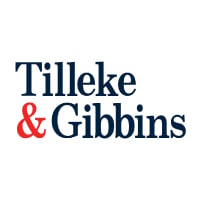

Legal counsel – SAS Thailand | SAS Software






Pichakorn Thammapibaljit
Legal counsel – SAS Thailand | SAS Software
What are the most significant cases, projects and/or transactions that you and/or your legal team have recently been involved in?
As a global leader in Advanced Analytics and Artificial Intelligence, SAS is dedicated to transforming a world of data into a world of intelligence. Over the past year, we have focused on advancing our cloud services and AI-driven solutions, with significant enhancements to SAS Viya, a cloud-native and cloud-agnostic platform. This platform empowers organisations to make faster, more informed decisions by leveraging real-time analytics and machine learning capabilities. Our tailored solutions, particularly for the banking sector, address critical needs such as fraud detection, risk management and customer intelligence to assist financial organisations in safeguarding assets, optimising operations and delivering personalised customer experiences.
In Thailand, SAS continues to drive growth through cloud-based services and AI-powered solutions. Our tools help clients meet compliance and regulatory standards and enable them to adapt to challenges and seize opportunities in competitive markets. Fraud intelligence and risk management platforms are just a few examples of how SAS empowers organisations to thrive.
As legal counsel, I play a vital role in supporting SAS’s strategic initiatives. This includes guiding software and professional services agreements, navigating complex legal landscapes and ensuring compliance with evolving regulations. By leveraging my expertise in licensing, contract negotiation and regulatory requirements, I help streamline transactions, foster trust and contribute to successful business outcomes.
By collaborating with cross-functional teams, I align legal strategies with SAS’s business objectives, ensuring our focus on cloud and AI advancements is supported by robust legal frameworks. This approach helps SAS remain at the forefront of innovation, driving customer success and business growth.
How do you approach managing legal aspects during periods of instability or crisis to ensure the organisation’s resilience?
When times of uncertainty or crisis arise, organisations need a wise and concerted strategy to address legal challenges effectively. It begins with identifying areas of potential concern, such as gaps in compliance, high-risk liabilities or contractual disputes, and resolving them early on. Legal teams play a crucial role in guiding executives with practical and clear advice, enabling swift decision-making while staying within the bounds of the law and ethical principles.
It is equally important to align legal strategies with the organisation’s overall objectives. Legal considerations should not be isolated from the larger picture; rather, they should be integrated into the broader framework. When governance practices and business priorities align, it becomes easier to make well-balanced decisions. Additionally, a robust crisis management plan with legal elements incorporated at every stage — preparation, response, and recovery — ensures the organisation is equipped to address challenges effectively.
Technology can also provide valuable support. Tools designed for legal processes can streamline tasks such as monitoring compliance, assessing risk and organising essential documents. These solutions not only save time but also reduce errors, allowing organisations to approach challenges with greater confidence.
Have you had any experiences during your career as a lawyer that stand out as particularly unique or interesting?
During my career as an in-house legal counsel, one of the most unique and interesting experiences has been adapting to the growing trend of managing legal responsibilities across multiple countries. Being a sole counsel responsible for legal matters in diverse jurisdictions is undoubtedly challenging, but it has also been incredibly rewarding.
This role demands a good understanding of not just the law but also the cultural, economic and regulatory nuances of each country. Balancing these differences while ensuring compliance and delivering consistent legal support has sharpened my adaptability and analytical skills. The experience has also emphasised the importance of staying ahead of evolving global trends, from cross-border contractual standards to data privacy regulations.
Though demanding, this dynamic aspect of in-house legal practice makes my career interesting and continually pushes me to grow, bridging gaps, establishing connections between areas and coming up with innovative solutions to complex problems.
What do you think are the most important attributes for a modern in-house counsel to possess?
A modern in-house counsel must be adaptable, especially when managing legal matters across multiple countries. Strategic thinking and problem-solving are essential for aligning legal advice with business goals and addressing complex challenges. Strong communication skills help build trust and foster collaboration with stakeholders, while staying ahead of trends such as data privacy and technology ensures continued relevance. Balancing legal expertise with business acumen and cultural awareness is key to thriving in this dynamic role.
Based on your experiences in the past year, are there any trends in the legal or business world that you are keeping an eye on that you think other in-house lawyers should be mindful of?
Key trends for in-house counsel include evolving data privacy regulations, expanding cloud services and AI adoption, a rising focus on ESG compliance, and increasing cybersecurity threats. Being proactive in these areas ensures compliance, reduces risk, and supports business agility.
Head legal and sr licensing analyst | SAS
Head legal and licensing operations | SAS Software
Head of legal and licensing operations – SAS Thailand | SAS Software